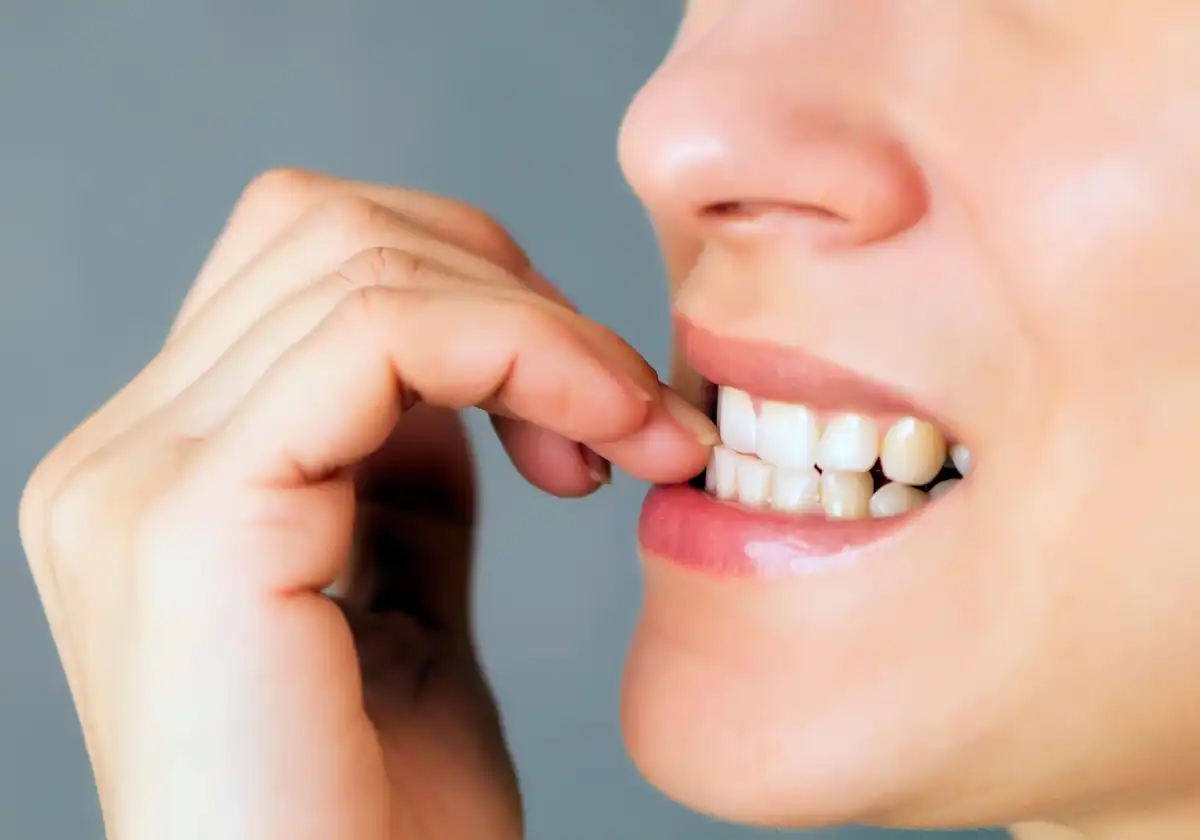5 Bad Habits That Are Ruining Your Teeth!


Brushing and flossing regularly are well-known healthy habits that contribute to a beautiful smile. There is, however, a slew of poor habits that could be harming your beautiful whites. A few typical but harmful unconscious actions in your daily life could be eroding your teeth, infecting your gums, and causing harm to your oral health.
Many factors contribute to poor dental health, including undesirable behaviors like nail-biting, smoking, and opening bottles with your teeth. The following is a list of ten common habits that can harm your teeth.
1) Nail Biting
Nail-biting is one of the most prevalent habits. Teeth, while stronger than nails, can chip or deteriorate over time due to frequent friction. Biting your nails can wear down the enamel and lead to jaw and tooth misalignment. Gingivitis, or gum disease, can develop as a result, causing oral bone degradation. Nail-biting and chronic teeth grinding (bruxism) are linked to headaches, jaw stiffness, and facial soreness. This neurotic habit can chip teeth, cause jaw problems, and expose your mouth to microorganisms found under your nails.
Paint your nails with a bitter nail lacquer or adopt stress management techniques to reduce nail-biting (e.g. medication and exercise).
2) Using Teeth To Open Stuff
You run the danger of accidentally cracking your teeth or damaging your jaw when you use your teeth for anything other than what they were created for, such as opening a bottle or cutting off a price tag. Use a bottle opener and scissors, to avoid using your teeth.
You should not use your teeth as a multi-tool to open packages or untwist bottle caps! Our teeth must be treated with extreme caution and should only be used to chew food. Using your teeth as tools can harm your teeth and gums in the long run. Teeth can fracture, chip, or break if they are used as a tool.
3) Chewing Ice Cubes
Ice’s hardness and cold temperature can cause teeth to crack and fillings and other dental restorations to be damaged. Drink via a straw or avoid icy beverages with ice to avoid this tendency.
4) Frequent Snacking
Cavity-forming bacteria feast on leftover food particles in your mouth after you eat, producing acid that erodes your enamel and causes decay. Eat balanced, protein-rich meals instead of nibbling frequently, and drink lots of water to wash away residual food particles.
5) Brushing Too Hard
Brushing your teeth too hard can irritate your gums, induce gum recession, erode tooth enamel, and create dental sensitivity. Choose a toothbrush with soft bristles to avoid brushing too hard, and replace it every 3-4 months or when the bristles show symptoms of wear.
Brushing your teeth is necessary for excellent dental health; however, some people brush their teeth excessively hard. It may appear that the harder you brush, the better, but this could not be further from the truth. Too vigorous brushing can cause substantial harm to your teeth, including enamel loss, gum recession, and tooth sensitivity.

Make your inbox smile!
Subscribe





